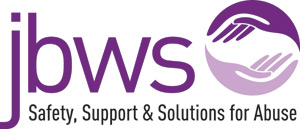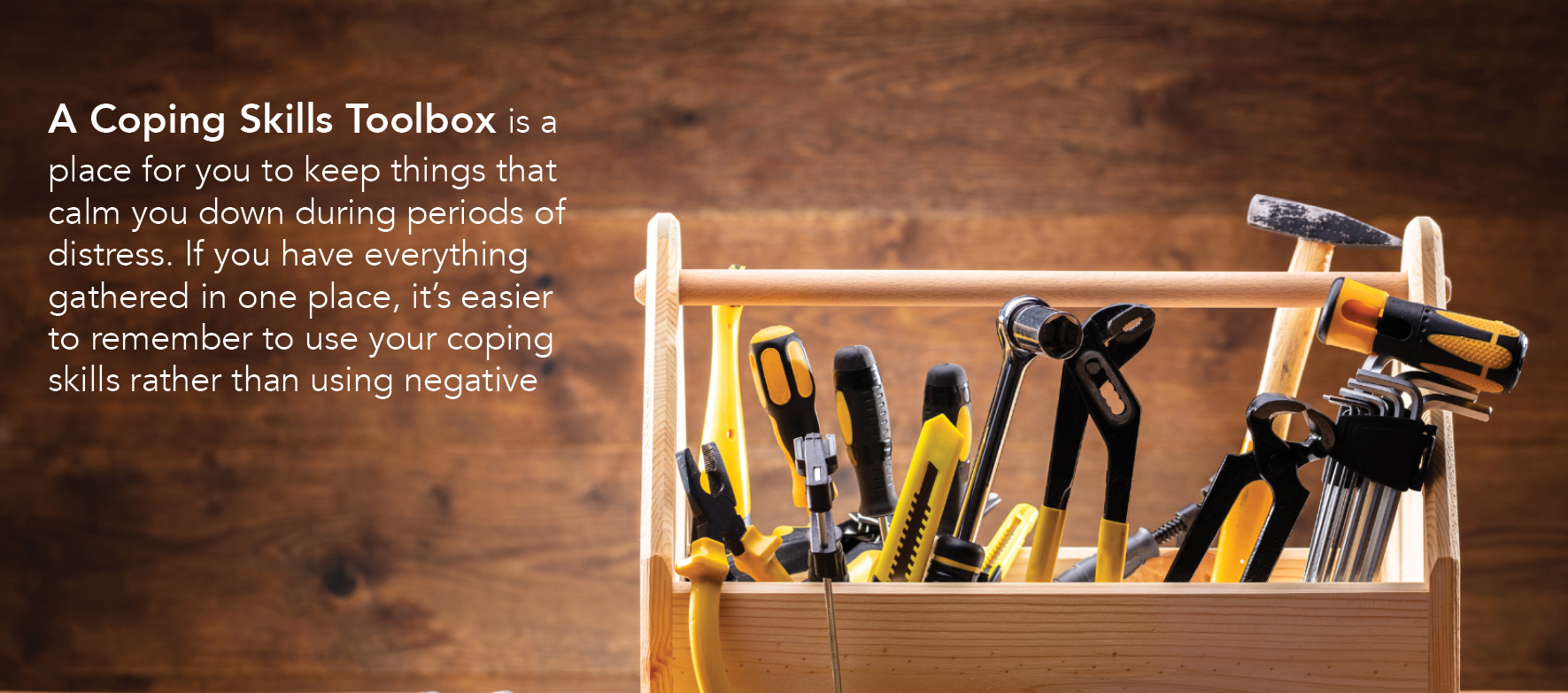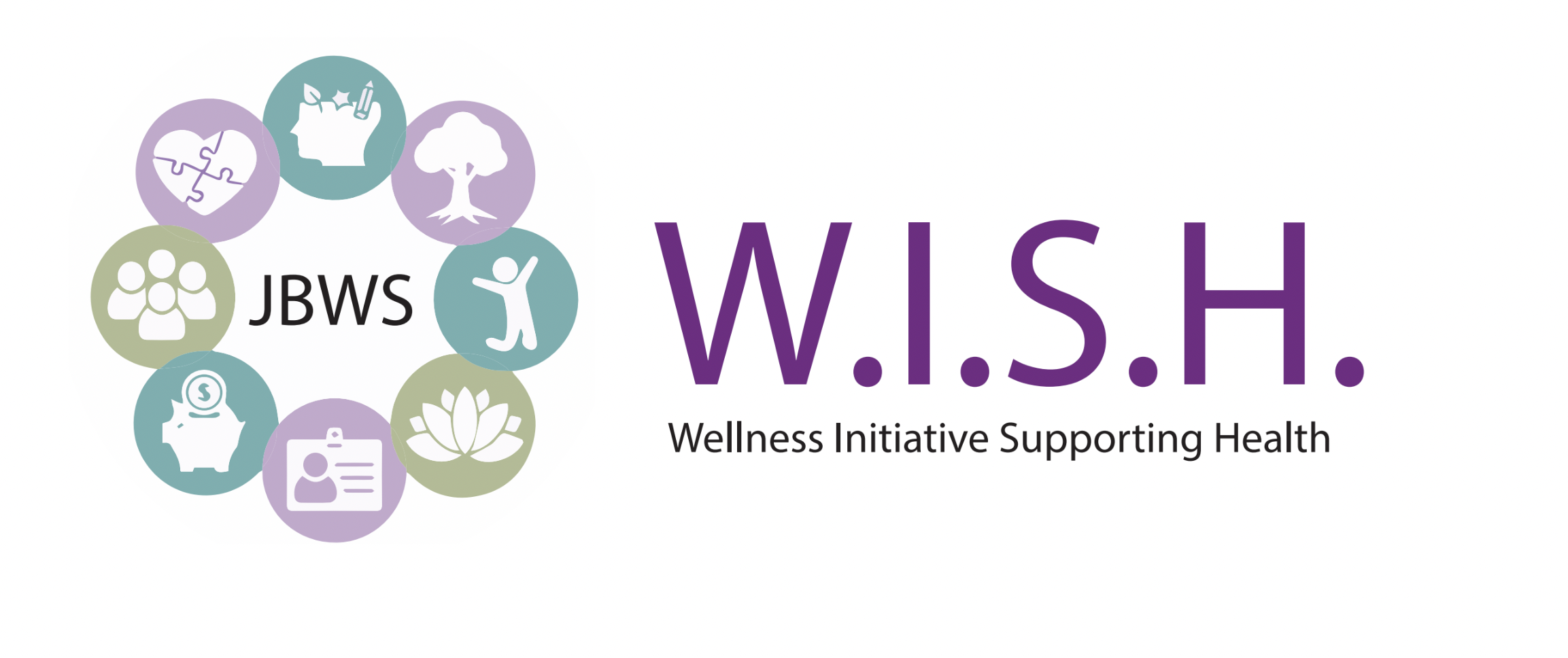
What is JBWS' Wellness Initiative Supporting Health?
As a domestic violence agency, trauma is a frequent fixture of our work. Our survivors experience trauma from the abuse of their partners while our staff may experience vicarious trauma from empathetically listening to traumatic experiences. Recognizing the impact of this trauma, coupled with a rising cost of living and limited access to mental health services, JBWS decided to launch the Wellness Initiative Supporting Health (W.I.S.H.) Program. This multi-year wellness initiative is designed to address the effects of trauma on both clients and staff by enhancing the eight dimensions of wellness in their lives.
About Wellness:
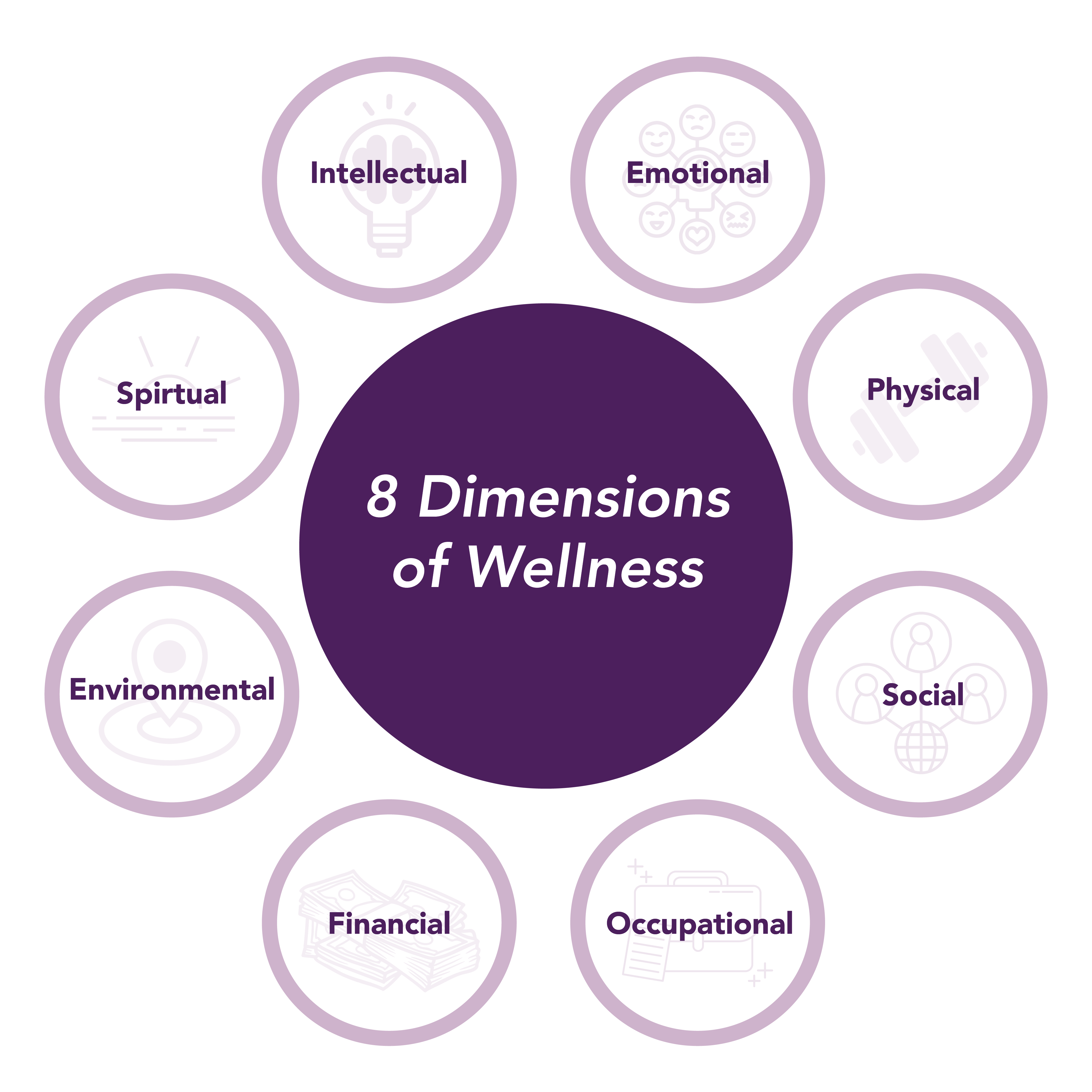
What Are The Eight Dimensions of Wellness?
The Substance Abuse and Mental Health Services Administration (SAMHSA) created the eight dimensions of wellness to help people both recognize and achieve wellness in these eight dimensions: emotional, environmental, financial, intellectual, occupational, physical, social, spiritual.
Check Your Own Wellness
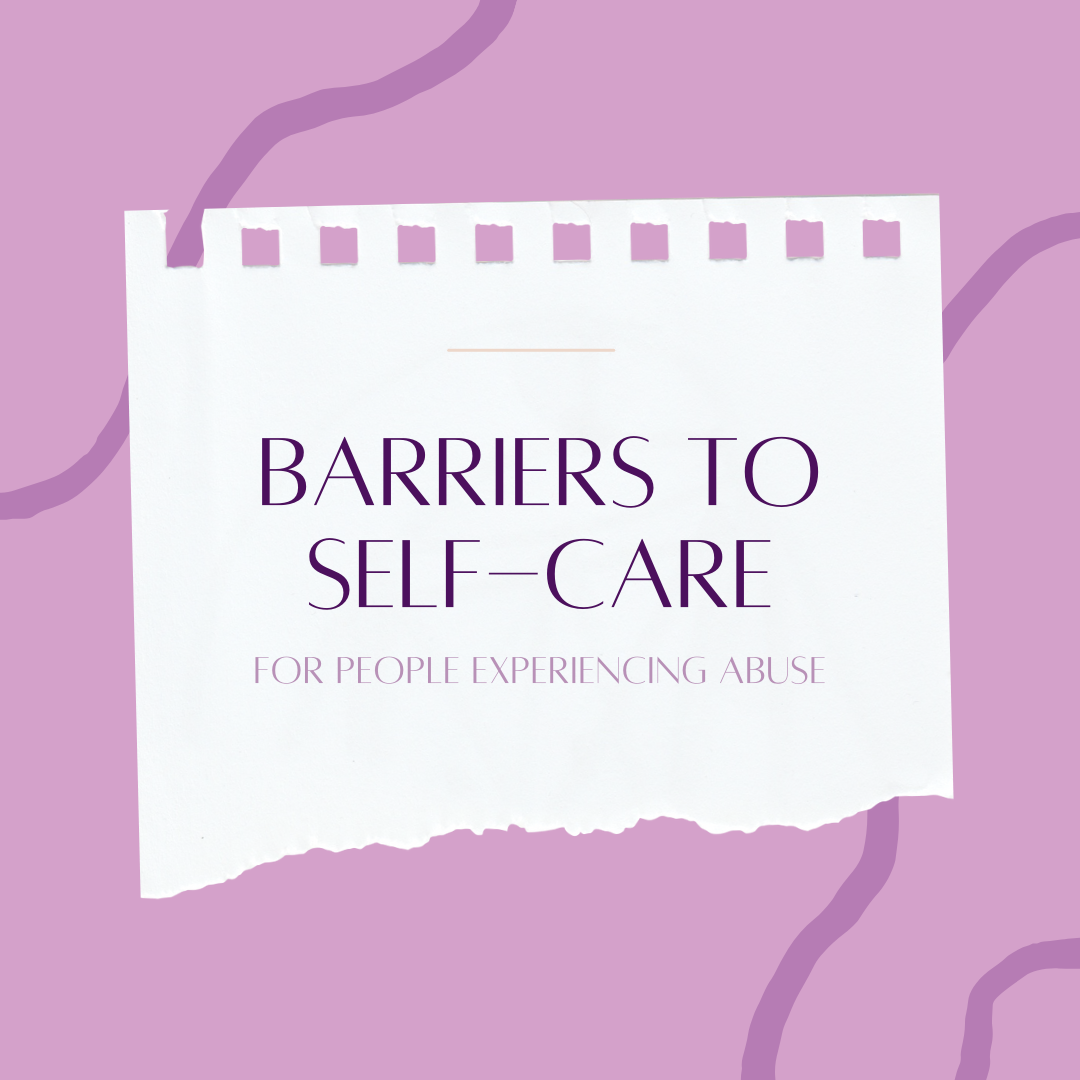
Barriers to Self-Care for People Experiencing Abuse
Many elaborate displays of self-care such as nutritionally perfect smoothie blends, lavish vacations, and spa trips are flat out inaccessible for the majority of people, let alone victims of domestic violence. However, sometimes self-care is just drinking a little bit more water today than yesterday. It doesn't always have to be a big deal or take up a large portion of time.
Practicing self-care becomes even more complicated when you’re a victim of domestic violence because you’re living in a constant state of survival. It’s almost insensitive to ask a victim to prioritize their mental wellness in these glamorous, mainstream ways when they’re constantly wondering how they’re going to keep themselves and their children safe. Learn more.
Wellness Rooms
What Are The Wellness Rooms?
A key element of JBWS’ Wellness Initiative Supporting Health (W.I.S.H.) Program was the development of three wellness rooms in our residential facilities.
With the help of AM Higley, JBWS transformed underutilized spaces in our Emergency Safe House and Transitional Living Resource Center into serene wellness rooms that could accommodate numerous healing modalities such as meditation, yoga, aromatherapy, physical exercise, and more.
Grounding Techniques and Coping Skills:
If you are feeling overwhelmed, stressed, anxious, or in need of soothing, you will find information on grounding techniques below.
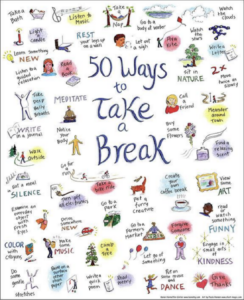 50 Ways to Take a Break!
50 Ways to Take a Break!
From taking a nap and listening to a guided meditation to finding a relaxing scent or calling a friend, there are many small ways to take a break if you need one. This PDF offers 50 suggestions for how you can take a break when you're in need.
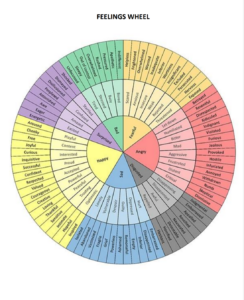 Feelings Wheel
Feelings Wheel
Starting from bad, fearful, angry, disgusted, sad, happy, and surprised, this feelings wheel covers a wide variety of feelings you may be experiencing.
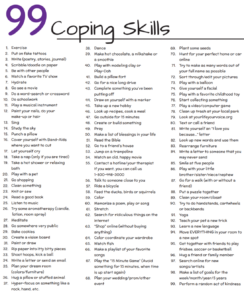 99 Coping Skills
99 Coping Skills
If you need to use a coping skill but don't know where to start, consulting this list of 99 coping skills is a great place to start.
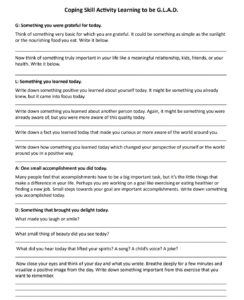 Learning to be GLAD
Learning to be GLAD
This coping skill activity allows you to reflect on something you're grateful for, something you learned, something you accomplished, and something that brought you delight! Find it here
Coping Skills Flyer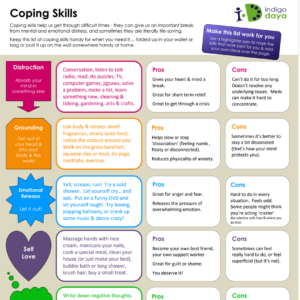
Coping skills help us get through difficult times. They can give us an important break from mental and emotional distress.
 Opposite Action
Opposite Action
Opposite action can be an incredibly useful tool to have in your emotion regulation toolkit. The idea is not to invalidate the reality of that emotional experience, but merely transform it into one more likely to bring about a desirable outcome. Find practical examples here.
